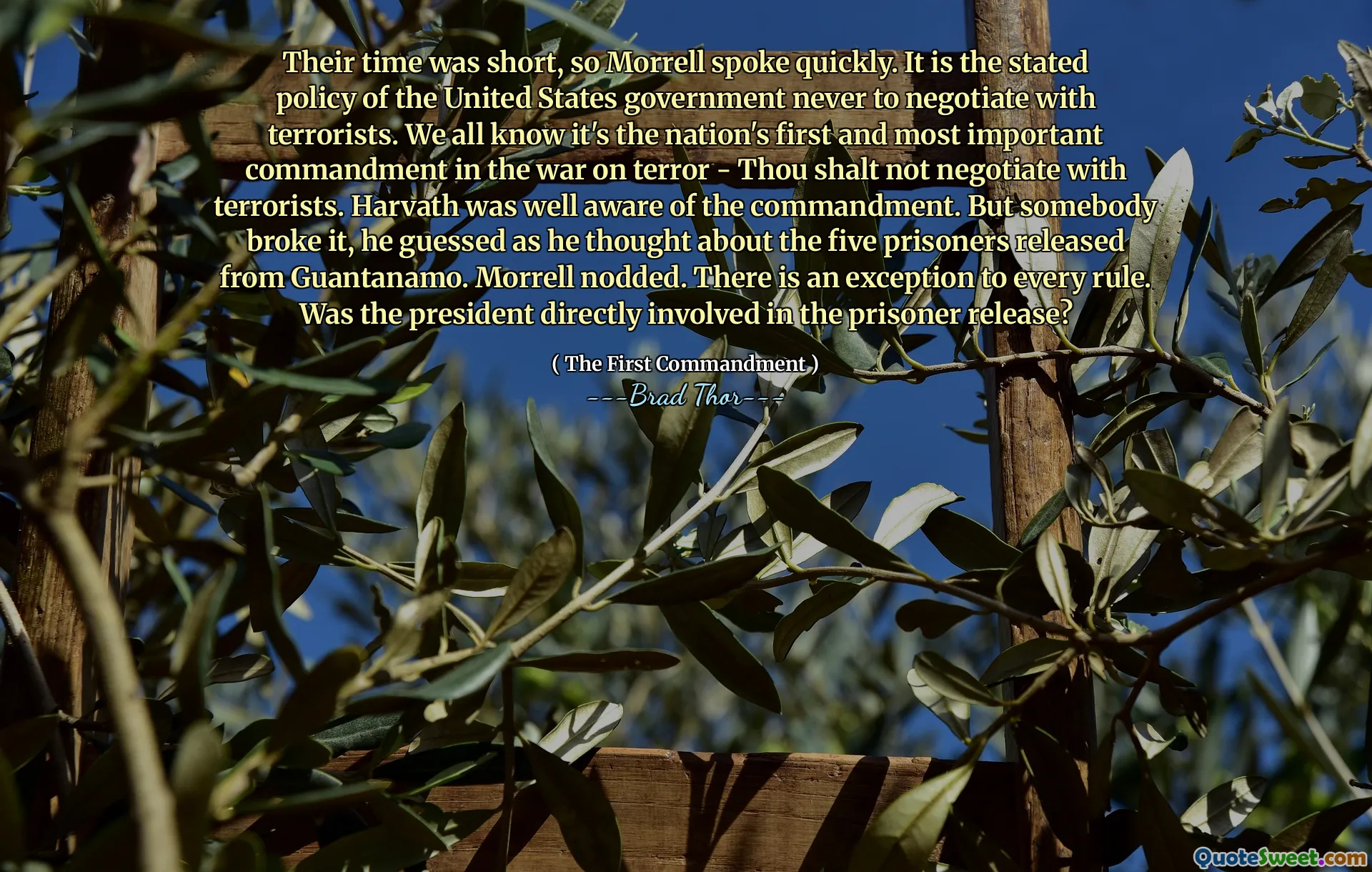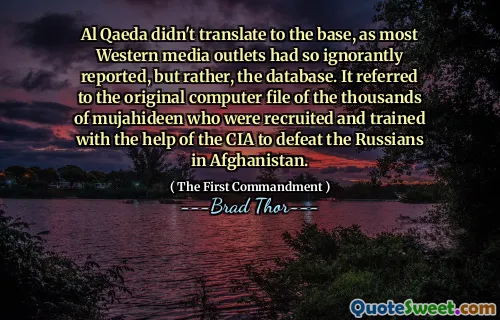
Their time was short, so Morrell spoke quickly. It is the stated policy of the United States government never to negotiate with terrorists. We all know it's the nation's first and most important commandment in the war on terror - Thou shalt not negotiate with terrorists. Harvath was well aware of the commandment. But somebody broke it, he guessed as he thought about the five prisoners released from Guantanamo. Morrell nodded. There is an exception to every rule. Was the president directly involved in the prisoner release?
Morrell emphasized the U.S. government's firm stance against negotiating with terrorists, highlighting it as a fundamental principle in the fight against terrorism. This unwavering commandment serves as a guiding rule in national security policy, reinforcing the idea that any engagement with terrorists undermines national interests. Harvath, however, recognized the complexities of the situation, particularly with the unexpected release of five Guantanamo prisoners, suggesting that exceptions can challenge established protocols.
The conversation raised critical questions about the president's potential involvement in this controversial decision. Morrell's acknowledgment of exceptions to the rule hinted at deeper political maneuvers and the moral dilemmas faced in such situations. This revelation prompted a rethink of the strict "no negotiation" policy, as the implications of these actions may have far-reaching consequences for national security and the ongoing battle against terrorism.









